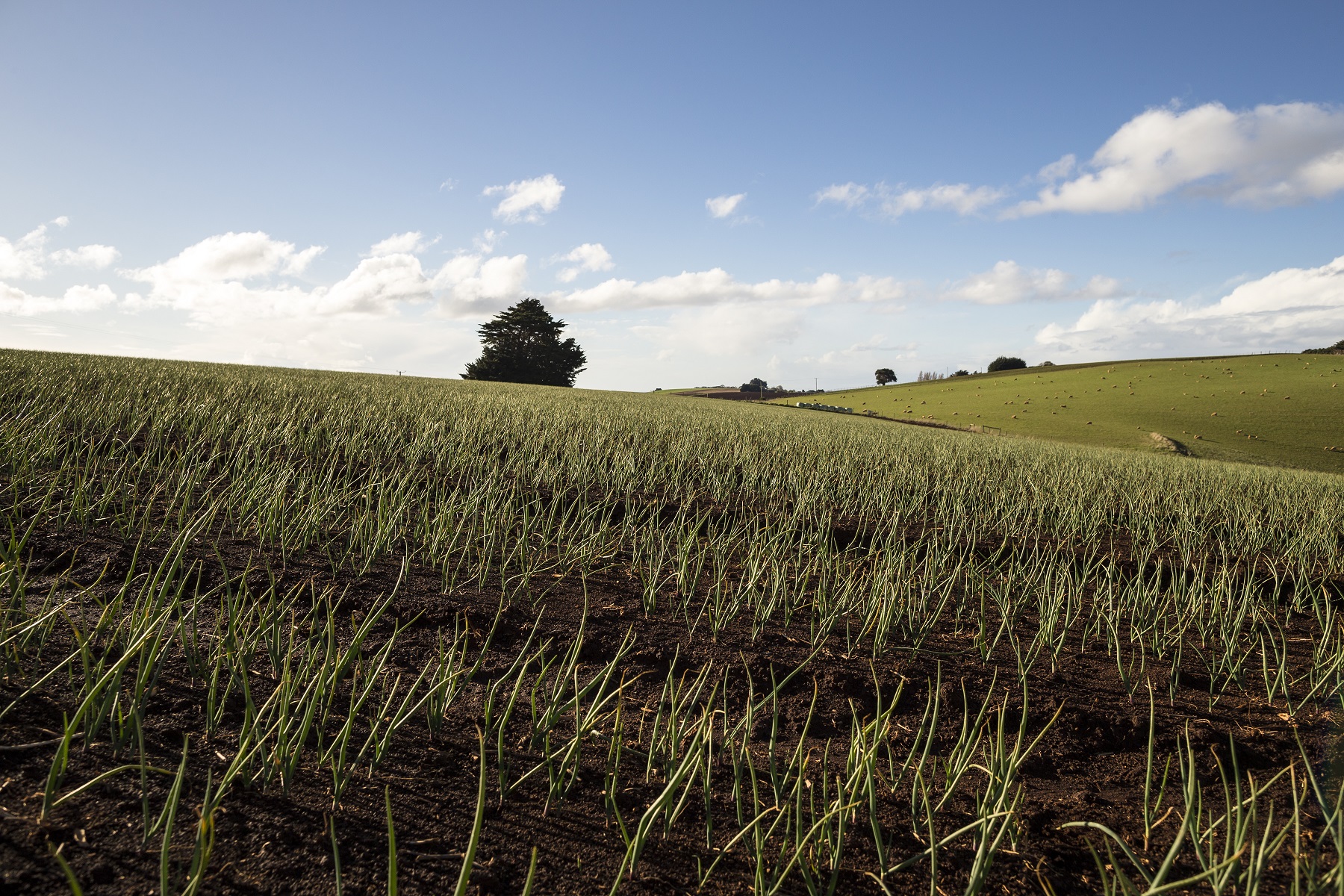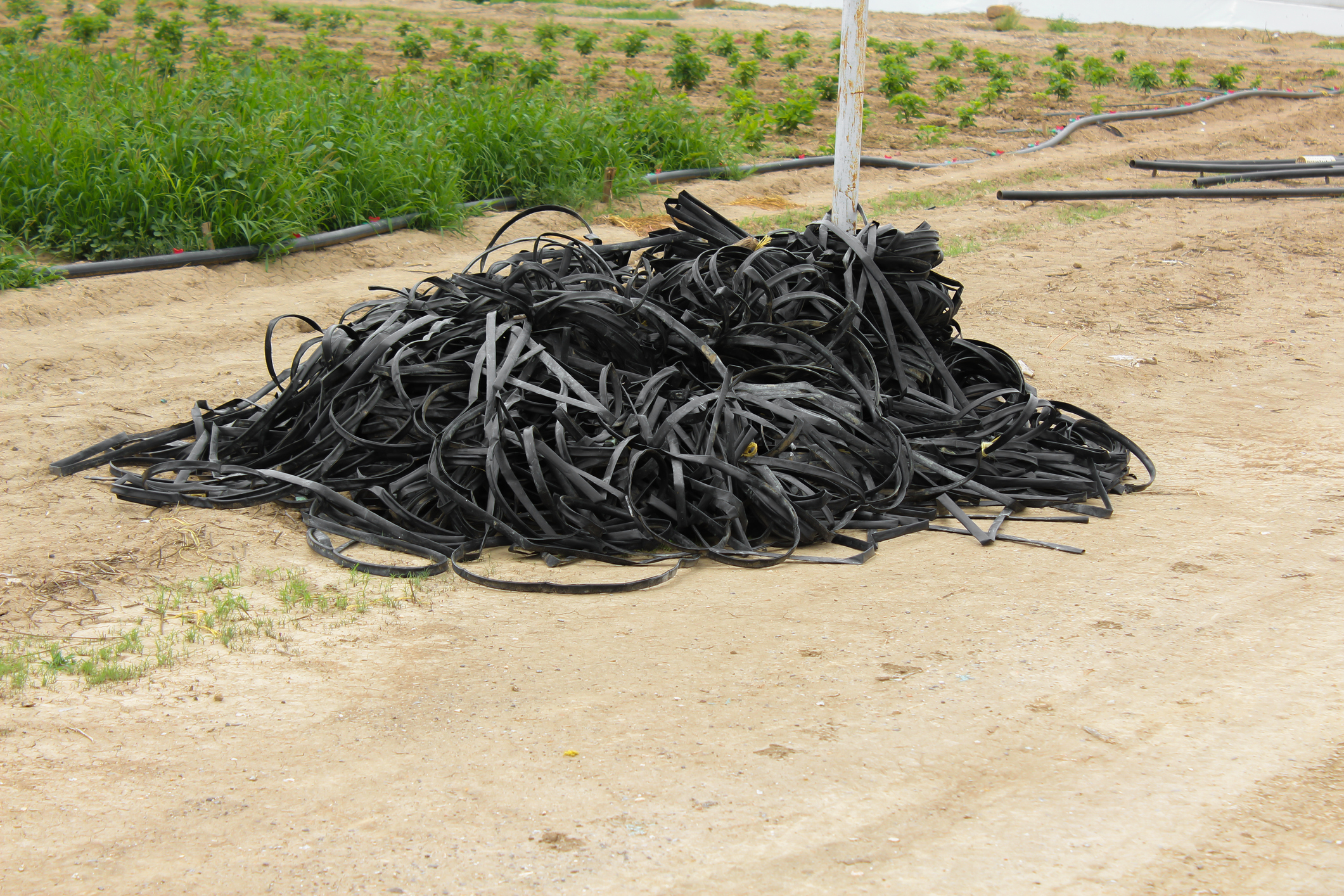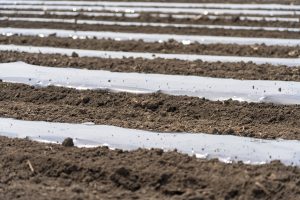
Improving water and fertiliser use efficiency
10 February 2021
Investigating ways to stop sclerotinia rot early
22 February 2021In November 2020, a new scheme aiming to tackle the issue of plastic waste in agriculture was announced. An initiative under the Federal Government’s National Product Stewardship Investment Fund, it will be led by RM Consulting Group (RMCG) and Queensland’s horticulture industry body, Growcom. Vegetables Australia spoke to RMCG Managing Principal and Project Lead Dr Anne-Maree Boland and Project Manager Carl Larsen about the scheme, and what it will mean for the vegetable industry.
It is widely known that there is a large number of plastics used in the agriculture sector; however, not many of those are being recycled. The numbers are stark – out of the approximately 90,000 tonnes of plastics that are consumed in Australian agriculture annually, only about seven per cent of those are currently being recycled.
A new initiative funded by the Federal Government’s National Product Stewardship Investment Fund is set to address this issue. Guided by the National Waste Policy, the Fund aims to accelerate new industry-led product stewardship schemes and improve the rates of recycling across new and existing schemes. The agricultural plastics stewardship scheme will dramatically reduce plastic waste in agriculture going to landfill and increasing waste recycling and recovery, and is being coordinated and led by RM Consulting Group and Growcom.
Finding recycling solutions
The intent of the scheme is to apply the circular economy principles to waste, initially avoiding the waste being produced.
“It’s a really important philosophy that the whole waste policy is trying to promote – we’re thinking about avoiding waste before looking at improving the recovery; that is, how can we put some of the materials back into the agriculture industry for further use,” RMCG Managing Principal and Project Lead Dr Anne-Maree Boland said.
The vegetable industry is one of the key producers of plastics, particularly plastic mulch and drip tape. The cost of labour and transport, as well as the lack of services to recycle agricultural plastics, is extremely limited, which contributes to plastics sent to landfill or disposed of in a harmful way. Practices such as stockpiling, burying and burning plastics have and continue to be a concern.
RMCG has previously undertaken projects that focused on plastics use in the vegetable and berry industries, and while there is considerable interest from growers it has been noted that more work needs to be done to make it practical.
“We’re trying to re-think the term waste and convey the message that it’s not a dirty word used at the end of the useful life of a product. We’re looking at it as a resource, rather than a waste product – waste is a design error,” Dr Boland explained.
“That’s important for the vegetable industry, particularly to tell its sustainability story with the development of the national Australian-Grown Horticulture Sustainability Framework underway at the moment, which is looking at dealing with and appropriately managing plastic waste and other forms of waste as well. It is really important to contribute to that narrative to consumers,” Project Manager Carl Larsen said.
Cross-industry collaboration
The agricultural plastics stewardship scheme was one of 15 projects that were awarded under the National Product Stewardship Investment Fund. While this scheme will largely focus on non-packaging plastics in horticulture, a separate project is being led by Dairy Australia investigating the recycling of silage wrap while another is being under undertaken by Greenlife Industry Australia that is focusing on plastic pots.
“We’re really keen to work with all of agriculture to make sure that we get coordination of those projects, and that we’re looking at the waste from a farming point of view rather than the individual industries,” Dr Boland said.
“We know there’s generally a willingness from farmers and growers to participate in these schemes. A lot of people would be familiar with drumMUSTER, which recovers the chemical containers. It collects about 1.5-2 million containers a year through the drop-off system. So, this is looking at a similar scheme for us to apply to other plastic products,” Mr Larsen added.
Long-term focus
Development of the scheme over the next two-years will involve a couple of pilot studies. One will be undertaken in Queensland (either south east or north), and the other in Melbourne’s peri-urban region.
“We want to make sure it’s a feasible proposition for the agriculture and the waste industries to have a product that they can do something with,” Dr Boland said.
“We don’t want to have a scheme that falls over after two years. We want to make sure that there is a good governance structure in place, and we’ve ironed out those issues surrounding logistics and contamination.”
At the end of the two years and beyond, Mr Larsen outlined the project partners wanted to pin their success to three things.
“One is around reducing waste going to landfill. We know that similar schemes for non-packaging ag plastic waste in the United Kingdom and Europe have reduced waste going to landfill by about 70 per cent, so to do that here would be fantastic,” he said.
“The second outcome we want to see is around increased recycling and recovery of ag plastics. We’d also really like to see a reduction in those illegal and environmentally harmful practices at the moment around stockpiling, burying and burning of those products on-farm.”
Getting involved
There are a couple of ways that vegetable growers can contribute to the development of the scheme and assist the project partners. One of those is helping with data collection.
“There are lot of gaps in what plastics there are and how much is used at the farm level. If growers are interested, we would be really keen to chat to them about the types of plastics and how much they use to inform our planning and decision-making,” Dr Boland said.
“Second, there will be an opportunity to be involved in the pilot projects in Queensland and Victoria, which will be in 12-18 months as the project progresses. This is where we’ll be looking at how the scheme might play out in practice,” Mr Larsen explained.
Dr Boland added that is an exciting time for the vegetable industry after many years of studies into the on-farm plastics waste issue.
“I think the missing ingredient from the recipe has been the coordination, which is what this project is trying to do. Everyone has good intentions – in the past, we may not have had the resourcing or the means to coordinate something, so this is really trying to act as the shot in the arm to get things going,” she said.
“Awareness is the first key step to action. If we can harness that, then that’s the start of something.”
Find out more
For further information or to express your interest in being involved in the agricultural plastics stewardship scheme, please contact Dr Anne- Maree Boland on 03 9882 2670 or email anne-mareeb@rmcg.com.au or Carl Larsen on 03 5261 6105 or at carll@rmcg.com.au.
More about previous studies can be found on page 52 of the May/June 2019 edition of Vegetables Australia.


